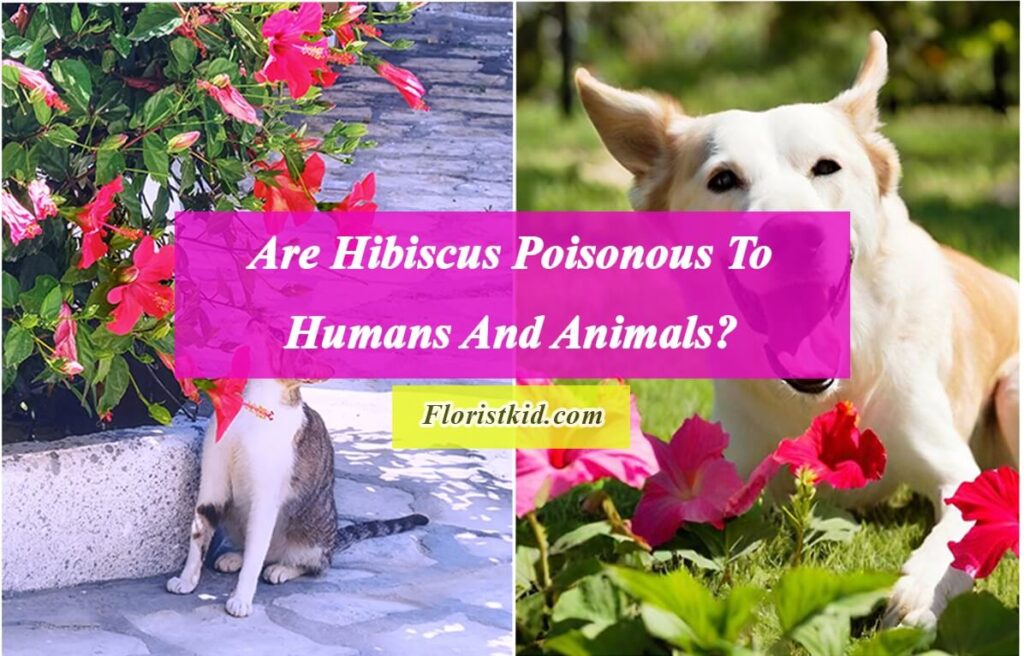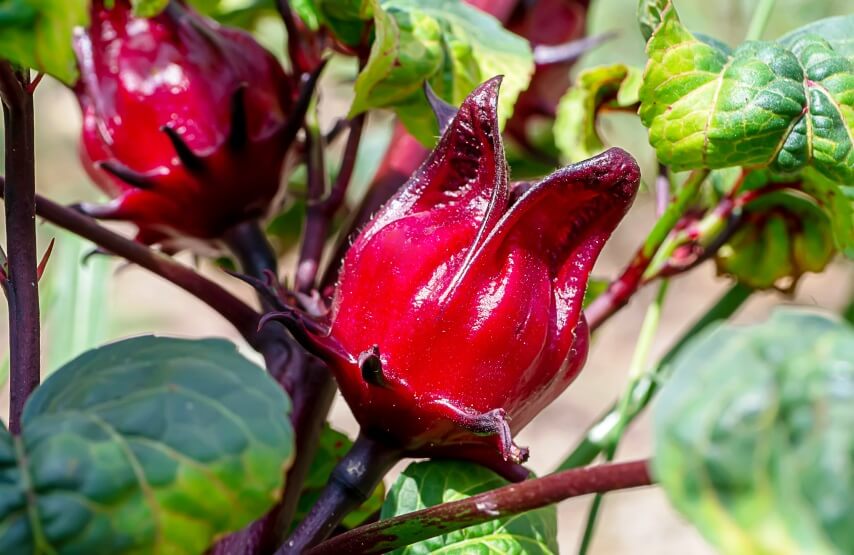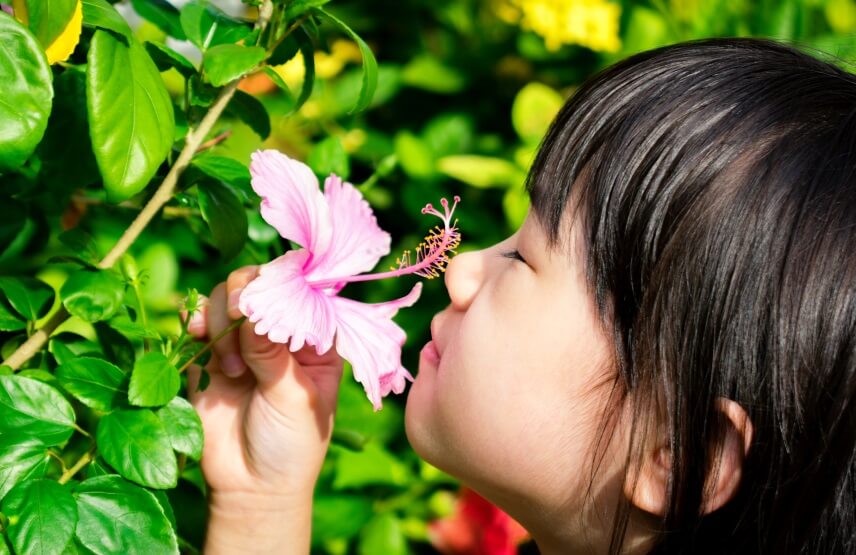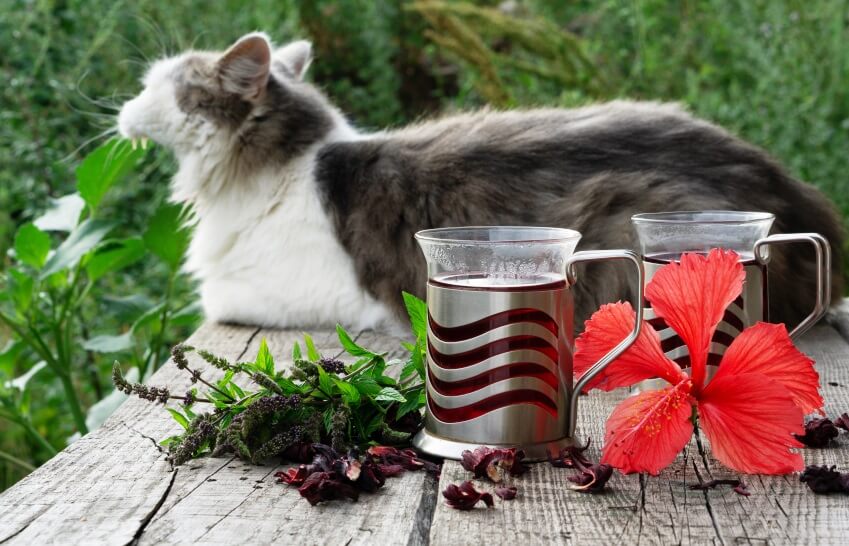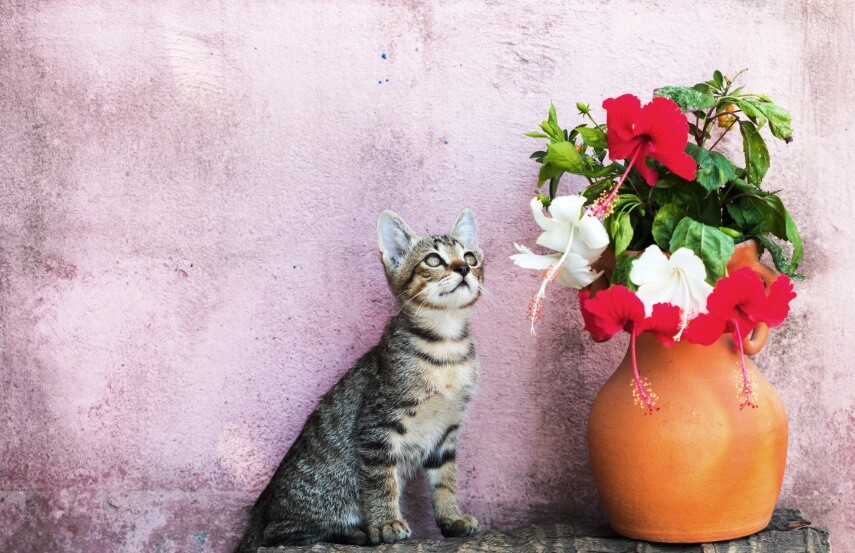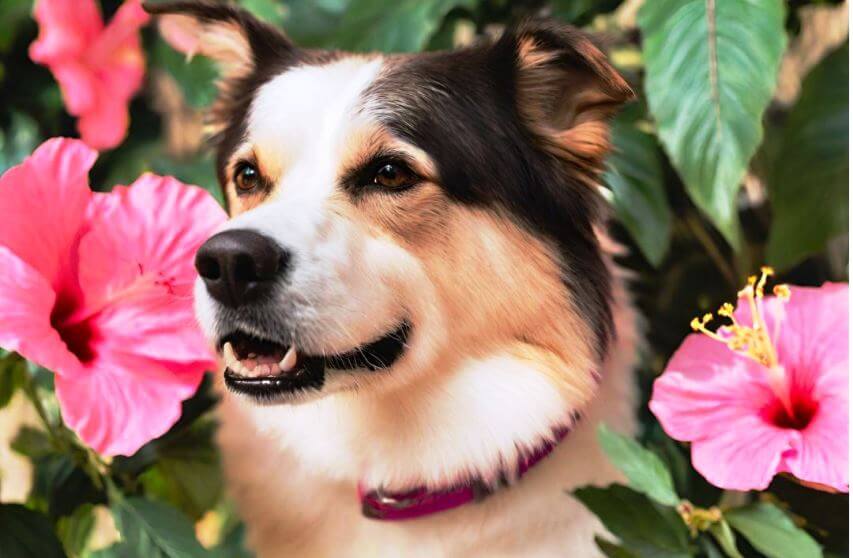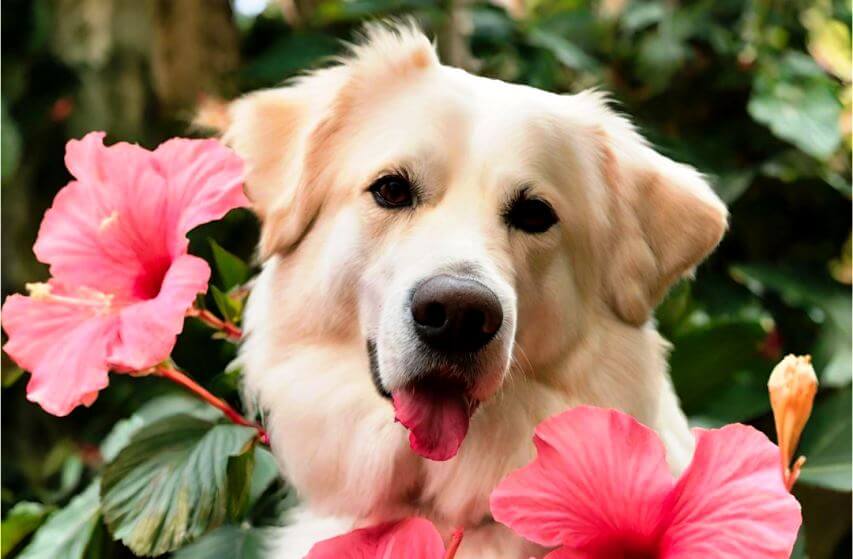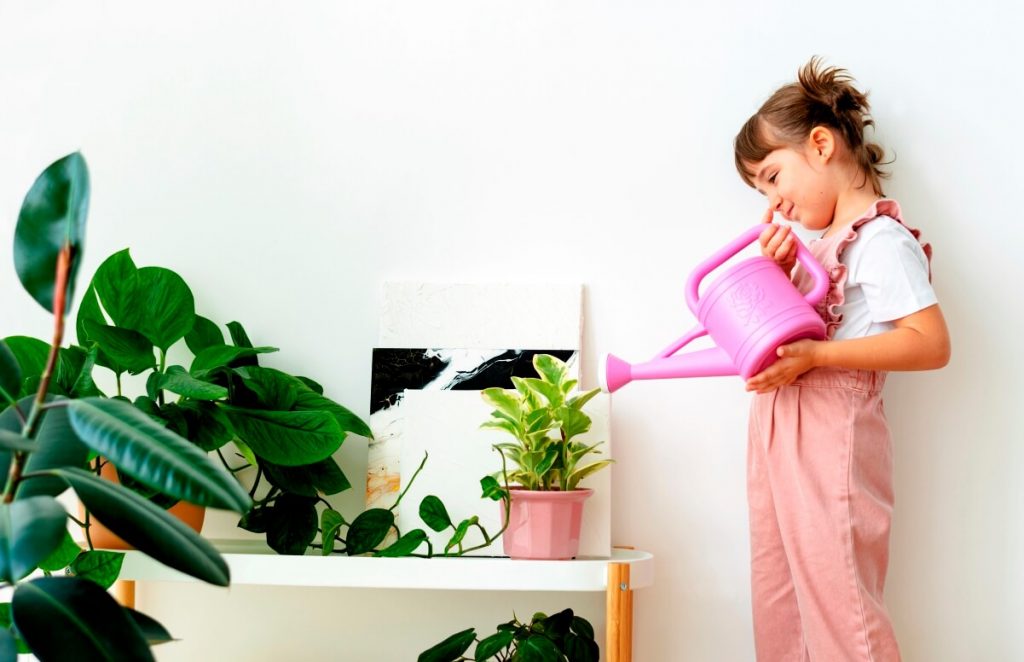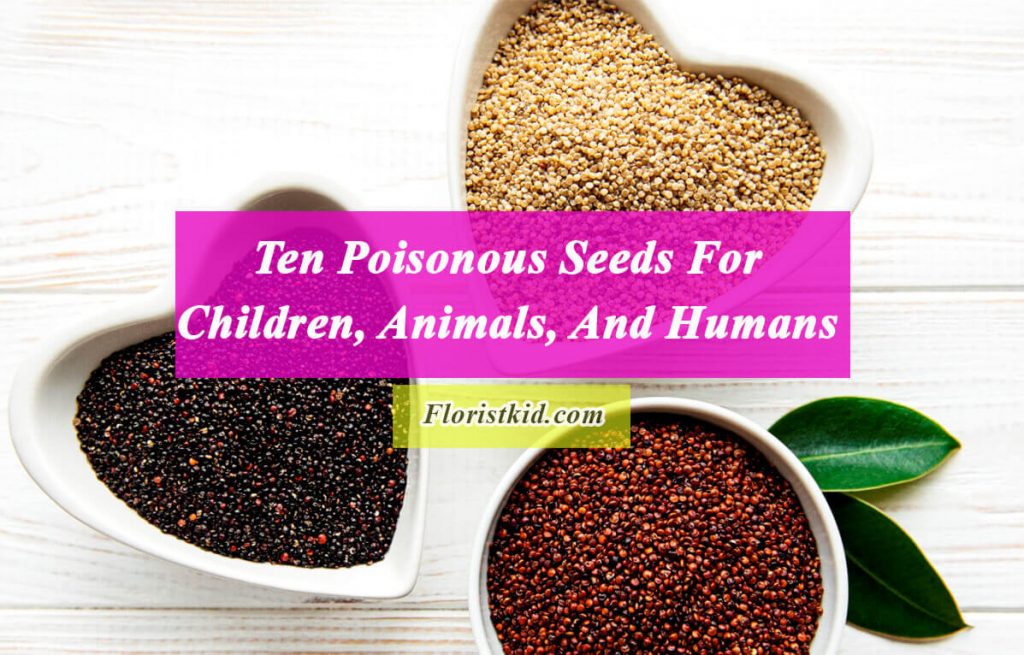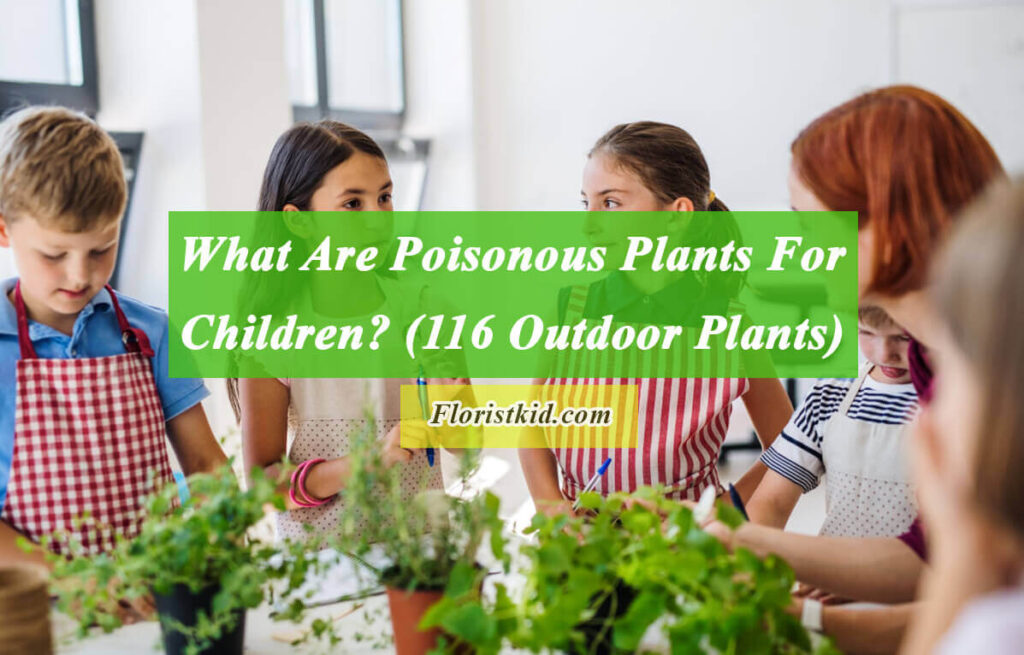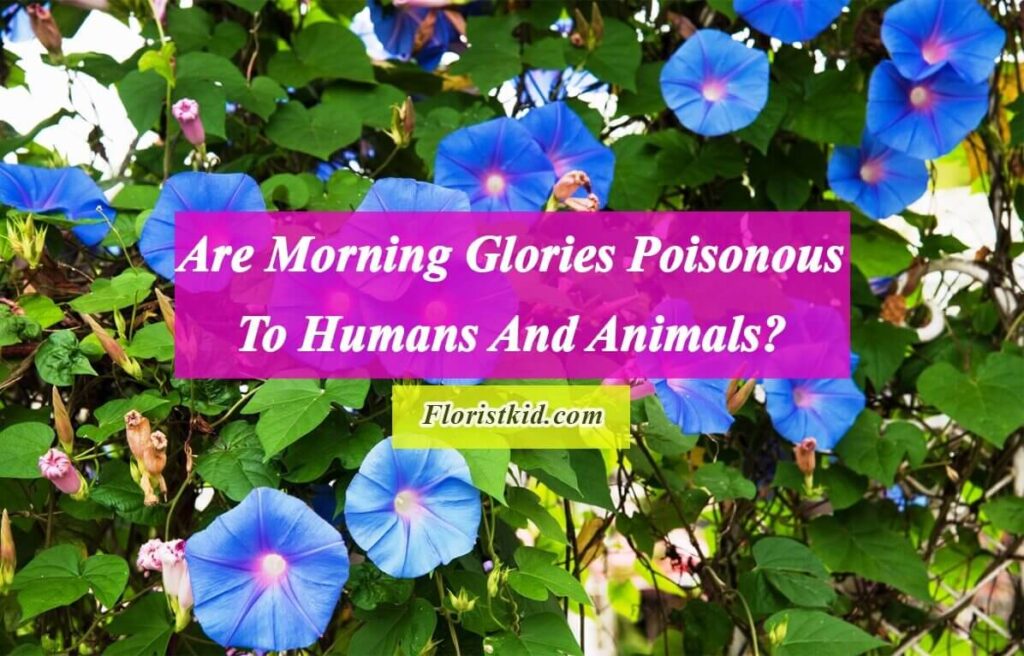Hibiscus (Hibiscus syriacus) plants, renowned for their colorful and extravagant blooms, are widely adored additions to gardens and indoor spaces. However, concerns often arise among pet owners and parents regarding the potential toxicity of these stunning flowers. This plant can be found in both tropical and subtropical regions worldwide. In this article, we delve into the facts to determine whether Hibiscus is poisonous to humans and animals and the precautions to take when it comes to the safety of our loved ones.
If you are interested in this topic, you can also read
<<Are Hydrangeas Poisonous? >> and <<Are Daffodils Poisonous? >> articles.
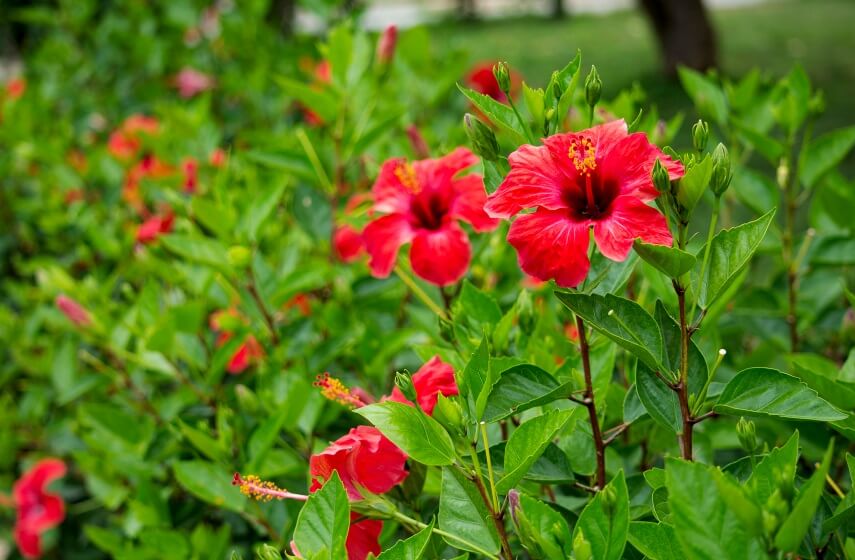
Toxic Components Of Hibiscus
Hibiscus poisonousness primarily stems from two different types of hibiscus plants: the edible Hibiscus sabdariffa and various ornamental hibiscus varieties. While both share the same family name, their properties, uses, and potential risks differ significantly. It is crucial to differentiate between hibiscus plants used for culinary purposes and those grown solely for ornamental reasons [1].
- Culinary Hibiscus (Roselle): Consuming beverages or teas made from Hibiscus sabdariffa, also known as Roselle, is generally considered safe. In fact, these products are known to offer numerous health benefits, including aiding digestion, maintaining cardiovascular health, and providing a rich source of antioxidants. However, as with any food or beverage, moderation is key.
- Ornamental Hibiscus: While ornamental hibiscus plants may have mild toxic properties, these are not typically a cause for concern. They may contain substances such as cyanogenic glycosides, saponins, and alkaloids, which can be harmful if ingested in large quantities. However, the bitter taste and tougher texture make these plants unattractive to most people, effectively reducing the risk of accidental ingestion [2].
Are Hibiscus Poisonous To Humans?
No, generally, Hibiscus are not considered toxic to humans. However, some ornamental varieties of Hibiscus are mildly poisonous to humans. Culinary Hibiscus (Roselle) plants are commonly used in traditional medicine and herbal teas due to their potential health benefits, such as aiding digestion, promoting cardiovascular health, and boosting the immune system. However, certain precautions are necessary for individuals with underlying medical conditions, allergies, or known sensitivities. Consuming hibiscus-related products should be done in moderation and according to professional guidance.
Precautions And Safety Measures For Humans
To ensure the safety of yourself and others around hibiscus plants, consider the following suggestions:
- Differentiate between ornamental and edible varieties: Familiarize yourself with the specific hibiscus species in your garden or nearby, and learn about their intended uses and potential risks. This knowledge will help you make informed decisions regarding consumption or precautions.
- Avoid ingestion of ornamental Hibiscus: As previously mentioned, ornamental hibiscus plants are grown primarily for aesthetic purposes and offer little to no nutritional value. It is recommended to refrain from consuming or allowing children to ingest any parts of these plants.
- Supervision: Always watch your children near hibiscus plants, ensuring they do not taste the leaves or flowers.
- Elevated Placement: If feasible and necessary, consider placing potted hibiscus plants out of reach, but ensure they still receive sufficient sunlight and care.
Are Hibiscus Poisonous To Cats?
Yes, hibiscus plants are mildly poisonous to cats. Hibiscus commonly graces many gardens and homes with its vibrant and attractive blooms. However, it is crucial to be aware of the potential risks associated with this plant when it comes to our beloved cats. Here, we will explore why Hibiscus poses a danger to cats [3].
Potential Risks To Cats
According to the American Society for the Prevention of Cruelty to Animals (ASPCA), Hibiscus is considered non-toxic to cats. However, it is important to note that while the plant is not considered poisonous, some cats may still have adverse reactions if they ingest Hibiscus.
It is best to monitor cats’ interactions with the plant. Some potential risks associated with hibiscus ingestion include digestive upset, such as vomiting, diarrhea, or decreased appetite. In rare cases, an allergic reaction may occur if a cat is hypersensitive to the plant. Signs of an allergic reaction may include skin irritation, swelling, or difficulty breathing. If any of these symptoms are observed, it is crucial to seek veterinary attention immediately.
Preventive Measures For Cats
To ensure the well-being of your cat, it is recommended to take preventive measures. Here are some guidelines to follow:
- Monitor interactions: Keep an eye on your cat while they are around hibiscus plants, both indoors and outdoors. Prevent them from chewing or ingesting any parts of the plant
- Decorative arrangements: If you have hibiscus blooms in cut flower arrangements, ensure they are displayed in areas inaccessible to your cat. Cats are naturally curious and may be tempted to chew on or play with the flowers.
- Indoor plants: If you have hibiscus plants indoors, consider placing them in areas where your cat cannot access them. High shelves or hanging pots can help keep the plants out of reach.
- Alternative plant choices: If you are concerned about your cat’s safety around Hibiscus, consider opting for other feline-friendly plants with a similar aesthetic appeal. Some safe plant options include spider plants, catnip, or cat grass.
Are Hibiscus Poisonous To Dogs?
Yes, hibiscus plants are mildly poisonous to dogs [4].
Potential Risks To Dogs
Ingesting or coming into contact with hibiscus flowers, leaves, or plant material typically does not lead to serious toxicity or health issues in dogs. However, it’s important to note that mild gastrointestinal upset, such as vomiting or diarrhea, may occur if a dog consumes large quantities of hibiscus plant matter. This can be attributed to the plant’s fibrous nature, which may result in an upset stomach or potential obstruction if ingested excessively.
Certain individuals may exhibit allergic reactions or sensitivity to the plant. Contact with hibiscus flowers, pollen, or other plant parts can cause some dogs mild skin irritation, redness, itching, or dermatitis. If you notice any unusual symptoms or signs of discomfort in your dog after contact with hibiscus plants, it is advisable to consult a veterinarian.
Preventive Measures For Dogs
Although hibiscus plants are not highly toxic to dogs, responsible pet ownership entails taking precautions to prevent accidental ingestion or excessive exposure. Here are a few tips to help keep your dog safe around hibiscus plants:
- Supervision: Supervise your dog outdoors to ensure they do not nibble on or ingest any plant material, including hibiscus leaves, flowers, or fallen debris.
- Training and Restriction: Teach your dog to avoid chewing or exploring plants in your garden or yard. Implement basic obedience commands like “leave it” or “drop” to discourage them from interacting with potentially harmful plant matter.
- Fence Off Your Garden: Consider creating a physical barrier, such as a fence or garden gate, to restrict your dog’s access to hibiscus plants or any other potentially toxic plants in your garden.
- Plant Selection: If you have concerns about your dog’s safety, you may opt for flower beds or landscaping that do not include Hibiscus or other plants that could pose a potential risk.
Conclusion
In summary, while the topic of hibiscus toxicity can be confusing due to the different varieties, it is important to distinguish between edible and ornamental hibiscus species. Consuming Hibiscus sabdariffa (Roselle) beverages is generally safe and even beneficial to human health. Conversely, ornamental Hibiscus harbors only mild toxins and is not typically a point of concern. However, as a precaution, it is always advisable to enjoy hibiscus flowers from your garden or local vendors solely for their beauty and to avoid accidental ingestion.
It is crucial to exercise caution around pets and small children. By understanding the mild toxicity of hibiscus plants to animals and employing preventive measures, you can enjoy the beauty of these flowers without compromising the well-being of your pets or loved ones.

